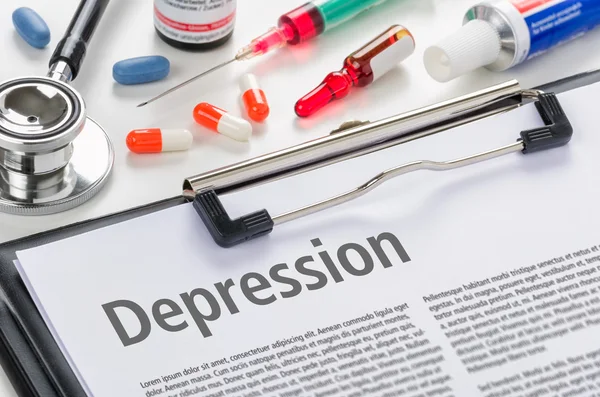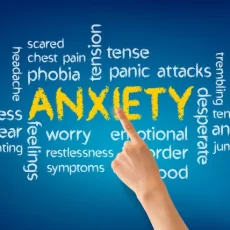- Are you consistently anxious about the future?
- Are you constantly thinking something may go wrong?
- Are you thinking that you may be inflicted with some disease?
- Are you thinking what if your children do not look after you in the future?
- Are you thinking about the loss of a dear one?
If yes, you are certainly anxious and you are not living in the present. I do not want to sound like motivational speakers spread all over the place, but I want to sound like one among you who too is fearful or anxious about the future. I believe, that some amount of anxiety is fine as it gives you strength to fight with challenging situations in life. Sometimes they help you to prepare the blueprint for future happenings. This way it has its positive side too but if you are too anxious and constantly live in an anxious state, it is a matter of worry. You need to shake it off and start living in the present. Though it may be easier said than done.
Everyone indeed feels anxious at some point in their life, but for some people, it can be an ongoing problem. A little bit of anxiety can be helpful. For example, feeling anxious before an exam might make you more alert and improve your performance. But too much anxiety could make you tired and unable to concentrate.

But as I mentioned above, it is not good to constantly live with anxiety as it can impact physical and mental health. It can affect the body in different ways, including the cardiovascular, urinary, digestive, and respiratory systems. A person with anxiety may feel nervous, restless, tense, or fearful.
Having anxiety can lead to long-term effects. People with anxiety may experience:
- Depression
- Digestive issues
- Insomnia
- Chronic pain conditions
- Difficulties with school, work, or socialization
- Substance misuse disorders
- Suicidal thoughts
Though people are seriously anxious, they do not take anxiety as a disturbing mental or physical state. They do not seek help or try to cure it; they just live with it. For this, you need to understand that “anxiety” is a disorder, which takes alarming proportions if not treated on time.
So, what is anxiety? Anxiety describes a group of disorders that cause worry, nervousness, and fear. These feelings of anxiety interfere with everyday life and are out of proportion to the triggering object or event. In some cases, people cannot identify a trigger and feel anxious for what seems like no reason.

While people may experience mild anxiety in some situations, such as before an important presentation or meeting, persistent anxiety can interfere with a person’s well-being.
According to the Anxiety and Depression Association of America, anxiety disorders represent the most common mental illness in the United States and affect 40 million adults every year. While these disorders respond well to treatment, only 36.9% of people with an anxiety disorder receive treatment.
Causes and risk factors:
- Traumatic life experiences
- Genetic traits
- Medical conditions, such as heart disease, diabetes, or chronic pain conditions
- Substance misuse
- Ongoing stress about work, finances, or home life
- Having other mental health disorders
“Worry is a thin stream of fear trickling through the mind. If encouraged, it cuts a channel into which all other thoughts are drained.”
To come out of this situation as a first measure, you need to practice mindfulness which can be described as: Being present means being fully engaged and aware of your environment, body, and mind in the here and now. It’s known as mindfulness, and it can enrich your life, helping you benefit in all kinds of ways.
How can you enjoy your “Now Moment”?
- Do not dwell in the past.
- NOW — the most precious thing.
- Do not feel anxious in the present moment.
- Be in this moment.
- Stay in the present.
- Do not ruin today.
- Hear your voice.
- Always hold fast to the present.
“Do not dwell in the past, do not dream of the future, concentrate the mind on the present moment.” — Buddha
Being present in body and mind has many benefits. Hence you need to learn how to live in the moment and be present (even if you are experiencing anxiety) by practicing mindfulness. How often do you find yourself worrying about the future or reliving the past, oblivious to the beauty of now? In a world filled with distractions, finding a present state of being deeply attuned to the present moment—has never been more important for well-being.
Embarking on a journey to be more present can bring benefits that ripple out through every aspect of your life, helping you cultivate awareness, ease, and connection.
The benefits of being present are that you are fully engaged and aware of your environment, body, and mind in the here and now. It’s known as mindfulness, and it can enrich your life, helping you benefit in all kinds of ways.

Being present nurtures richer, more meaningful connections with the people who are important to you. It allows for active, empathetic listening and deeper understanding, cultivating stronger bonds and mutual acceptance of each other’s flaws. Being present helps to alleviate tension from overthinking or fretting about the past or future, reducing overall stress.
Being present strengthens our ability to concentrate, filtering out distractions. It allows us to focus fully on our tasks, enhancing productivity and creativity. Embracing the present enables you to distance yourself from overwhelming worries and fears, thereby lessening the symptoms of anxiety and depression.
When you are in tune with the present moment, you can become more aware of your emotions and reactions, enabling you to navigate your feelings more effectively and relate better to others. Living in the moment can encourage a deeper connection with yourself, fostering self-compassion, self-esteem, self-acceptance, and a renewed appreciation for yourself.
This way we see that living in the moment can navigate you from anxiety to positivity. Thus making you happy and enabling you to make your surroundings happier.
Be happyHo.

